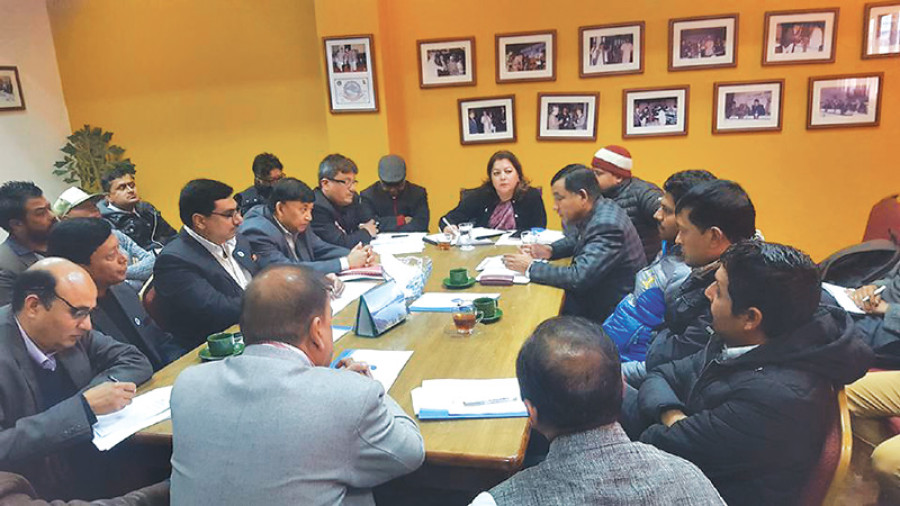Money
Meeting between hotels, workers on service charge issue ends fruitless
A meeting between Hotel Association Nepal (Han) and Nepal Tourism and Hotel Labourers Association to resolve the issue over service charge ended inconclusively on Friday.
A meeting between Hotel Association Nepal (Han) and Nepal Tourism and Hotel Labourers Association to resolve the issue over service charge ended inconclusively on Friday.
The two sides, however, agreed to address the matter in the next meeting after reviewing advantages and disadvantages of 10 percent service charge that hotels and restaurants add to the bill, said Han Executive Director Prabesh Aryal.
Three tourism and hotel labour associations have demanded the staff should get the entire amount collected as service charge. A joint struggle committee of the associations has threatened to launch a stern protest from February 12 if their demand is not addressed.
The service charge collected from customers is divided between employees and the management. As per an agreement signed in 2006, employees get 68 percent, while the management gets 32 percent.
Surya Bahadur Kunwar, president of Nepal Independent Hotel, Casino & Restaurant Workers’ Union (Central Committee), said the management has no right to claim the service charge and that they are firm on their demand. “We have given a week’s deadline to Han to call second meeting,” he said.
Kunwar said there are practices of dividing service charge between employees and the management worldwide, but the management gets less than 15 percent share. This share compensates losses incurred due to damage to hotel property as a result of workers’ mistakes.
According to Kunwar, on an average, a worker of a five-star hotel receives an additional Rs15,000 per month from the 68 percent service charge.
According to Han, service charge collection was made mandatory 10 years ago in a bid to narrow differences between hotel management and employees at a time when their dispute was at a peak.
The mandatory service charge system came into force on January 1, 2007. Since then, hotel and restaurant customers have been paying 24.3 percent extra on top of advertised prices—10 percent compulsory tip and 13 percent value added tax (VAT).
Last Sunday, Han, the umbrella body of hotels and restaurants, had said it was unable to fulfil the workers’ demand. India’s Department of Consumer Affairs recently announced that “service charges”, which restaurants include in the bill in addition to taxes, are actually optional and not mandatory.
The department has advised hotels and restaurants to display notices at appropriate places on their premises that service charges are discretionary or voluntary, and can be waived if a consumer is dissatisfied with the service.
In Nepal too, some hoteliers have started raising questions over the service charges stating it should be discretionary.




 9.7°C Kathmandu
9.7°C Kathmandu














